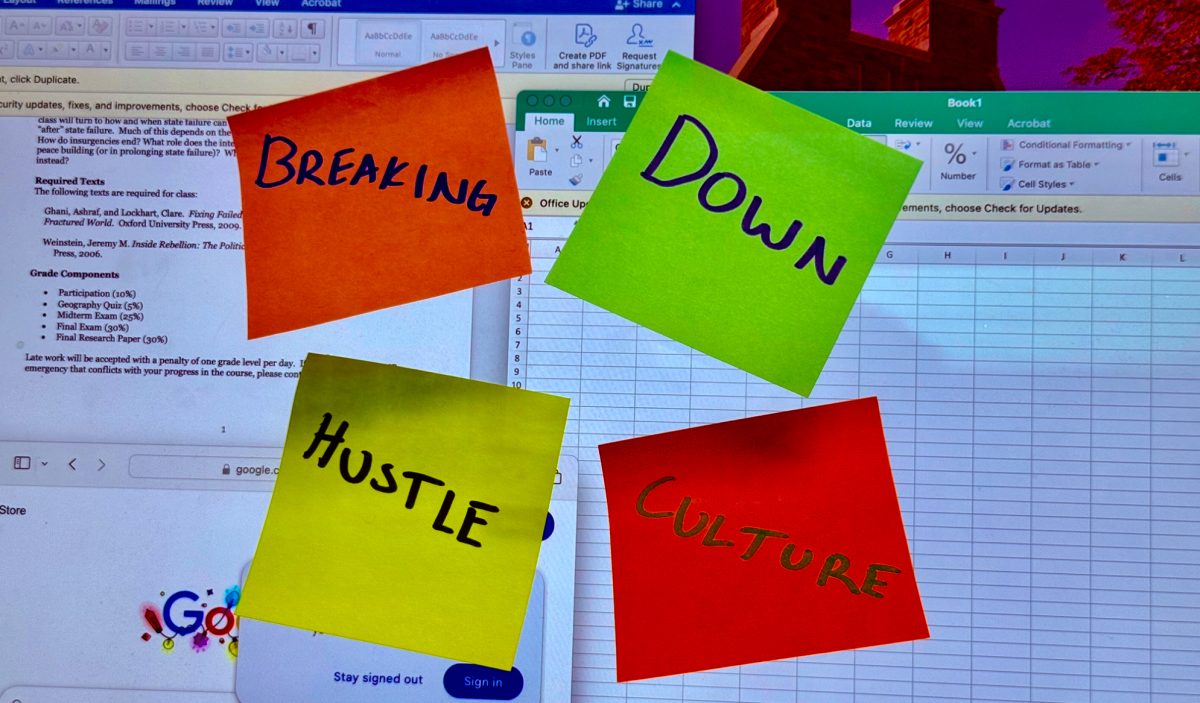The modern glorification of hustling and the obsession with work, busyness and productivity is overrated and harmful.
For many people, the more you work, the closer you are to professional success. Striving to advance their careers and pursue ambitious goals, sacrificing personal time and completely dedicating yourself to your work has become a natural trade-off for up-and-coming professionals who look for great financial success.
After tech startups boomed in the early 2000s, people’s behavior towards work shifted. This success helped the tech culture to thrive and has since influenced practices in other industries. Ideas about productivity in the tech industry have been incorporated into the culture of other businesses. The idea that unless you are suffering, or hustling every hour of every day, you are not working hard enough aligns with the image of the young techie who stayed up all night coding his own software, turning it into a multi-billion dollar tech company. This narrative and many others since have played an important role in the way people pursue their careers and dreams.
By praising people who work after hours, who never take a break and are constantly online and checking their email, society appears to celebrate people who completely dedicate themselves to their careers. Having high aspirations, ambition, a strong work ethic and determination are the golden traits companies seek for. As a result, hustling is seen as the only path to success.
More recent discussions about entrepreneurship and freelancing brought the culture of workaholism to a different level. Instead of promoting hard work as a necessity for productivity toward a specific professional objective, modern workaholism glorifies busyness, personal sacrifice and overworking yourself as a desirable lifestyle choice.
Prioritizing productivity, ambition and success at the expense of physical and mental well-being, hustling and workaholism are not seen as problems in our society, rather as the new norm. Hard work and long hours hold the promise of achieving personal ambitions, such as earning more income and advancing your career. Satisfying people’s need to engage in something meaningful and to work toward a greater good, they are blinded by the negative impact on relationships and actual productivity. However, restlessly working does not guarantee one’s actual productivity.
It is my experience that students often internalize the traits of workaholism in their study habits. Qualifying your days based on what you can add to your resume — earning an internship over the summer suddenly has become one’s measure of worthiness. Any downtime at all seems to be portrayed as laziness.
This pressure to always be productive is often normalized on college campuses. It can be explained by the general expectations of having a 4.0 GPA — all the while being active, assisting a professor with research, having a busy social life, securing an internship for the summer and planning a semester abroad. Many of these things are based on out-performing your peers, which increases the risks of burnout and anxiety.
While the struggle and hustle can be rewarding in the short run, it is unsustainable in the long run. Overworking yourself leads to exhaustion and anxiety, and taking a break is often not in the cards because of all the things you think you should or could be doing during downtime.
Rather than guiding people to a happy and fulfilling life, the hustle culture is a poisonous antidote to success.
While it is important to recognize that today’s job market requires people to excel in every endeavor and to have a strong and accomplished resume, I believe the way in which people go about their success determines how happy and fulfilled they will be in the future. If you are mindful and able to build a strong lifestyle that respects the work-life balance, reaching for your ambitions will not feel so strenuous.
Ultimately, one of the main reasons people hustle is because long hours are frequently tied to higher incomes. It is human nature to seek rewards, and monetary profit has become the standard measure of success in our society. Many are reassured by tangible markers of achievement, as personal fulfillment and spiritual well-being can be harder to quantify. Hence, the pursuit of wealth, along with its social validation, serves as proof that one has purpose and is doing well in life. In this context, money seems to be a key ingredient for happiness. As a result, people tend to confuse self-worth with net-worth.
But the cost of chasing wealth over personal development is regret.
The Australian palliative care nurse Bronnie Ware stated in “The Top Five Regrets of the Dying” that many people wish they had the courage to live a life true to themselves, not the life others expected of them. Nearing death, many come to realize that they spent most of their lives trading their own well-being for the productivity and prosperity of their company. Seeing how many dreams have gone unfulfilled because of fear of failure or judgment, many people deeply regret spending so much of their lives existing for their work.
The idea here is that you should make space for yourself in your life. This will give you the opportunity to be successful both professionally and personally. While it may seem that long hours lead to greater success, proper rest increases creativity and one’s ability to problem-solve. It also makes the time you spend working more efficient. Feeling fulfilled and happy, you are also more likely to be open to opportunities that you could have otherwise missed.



















